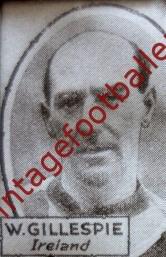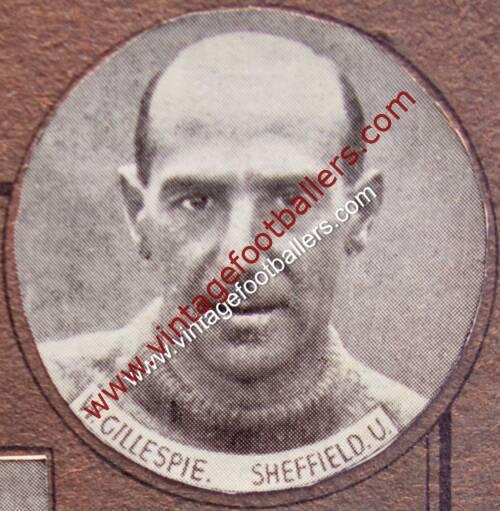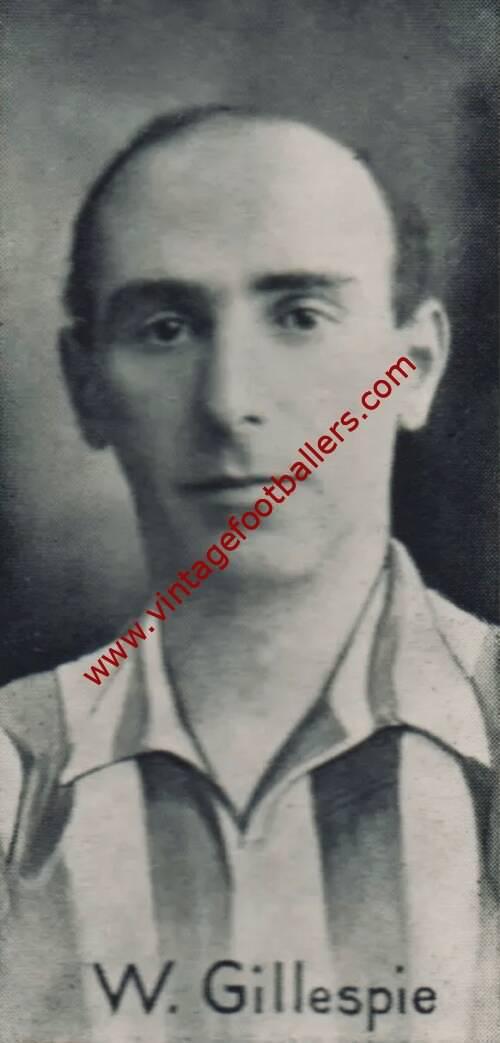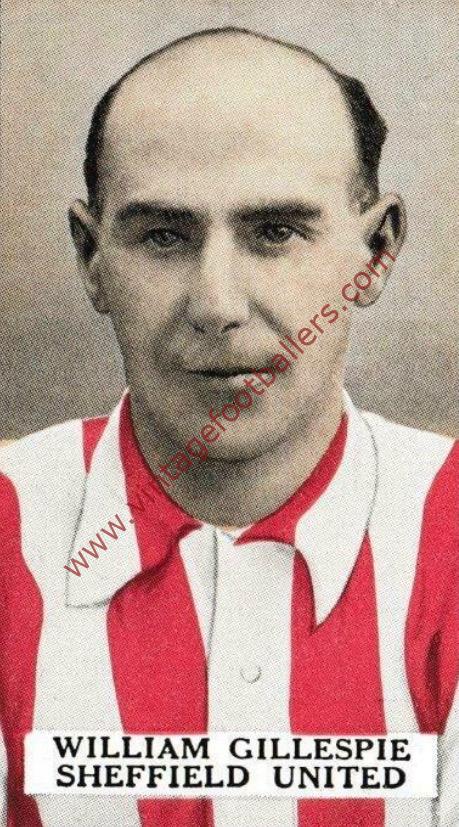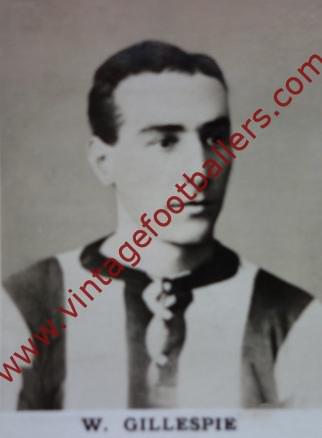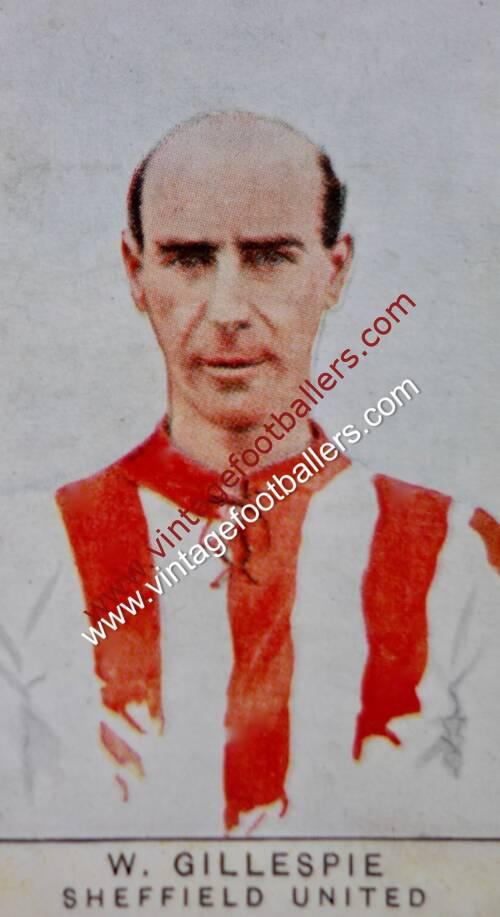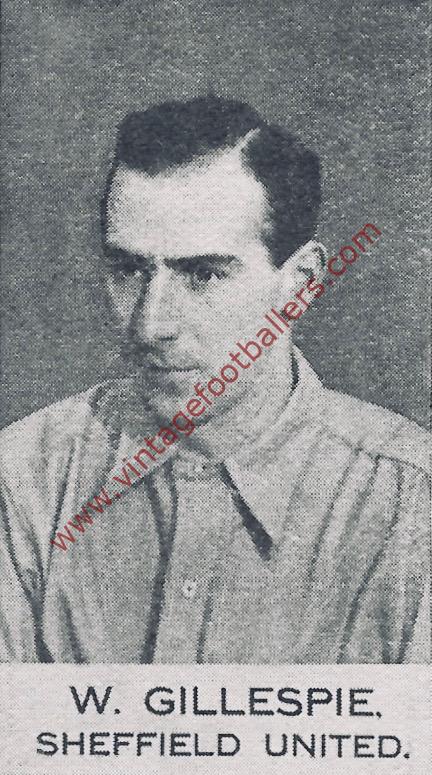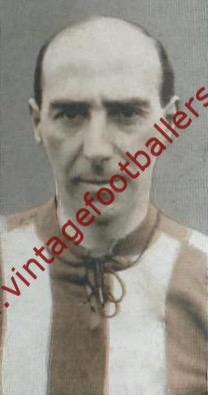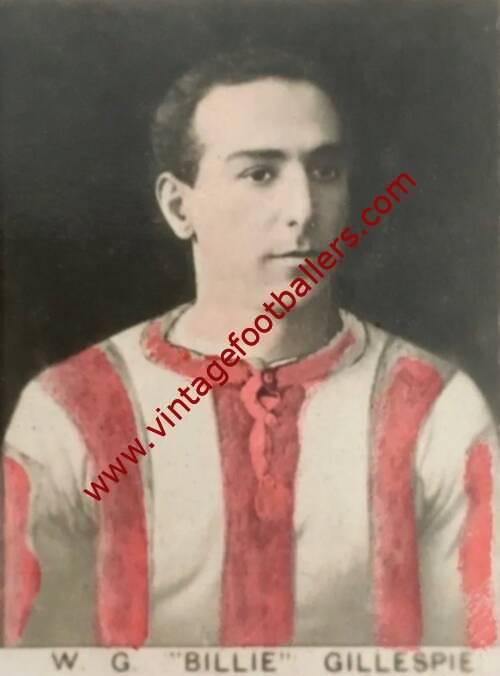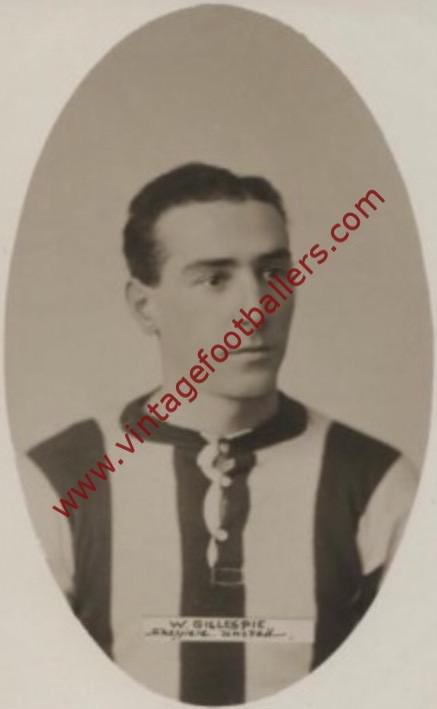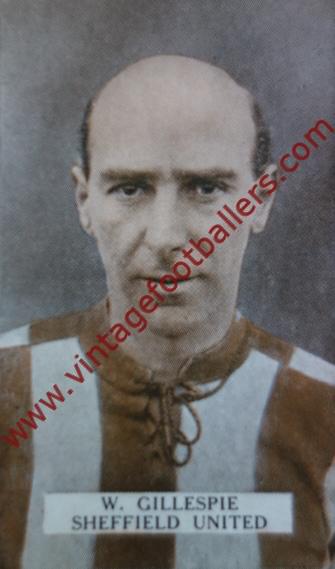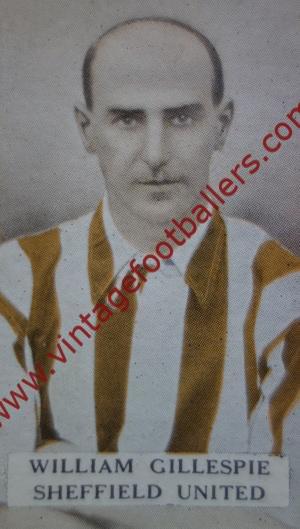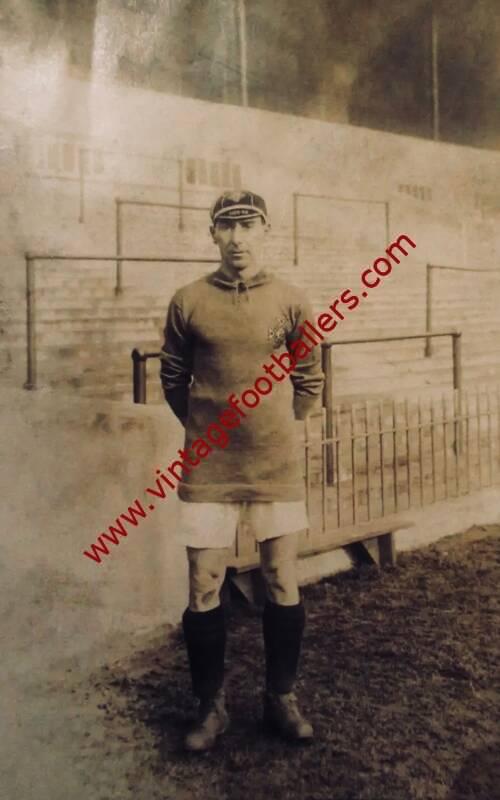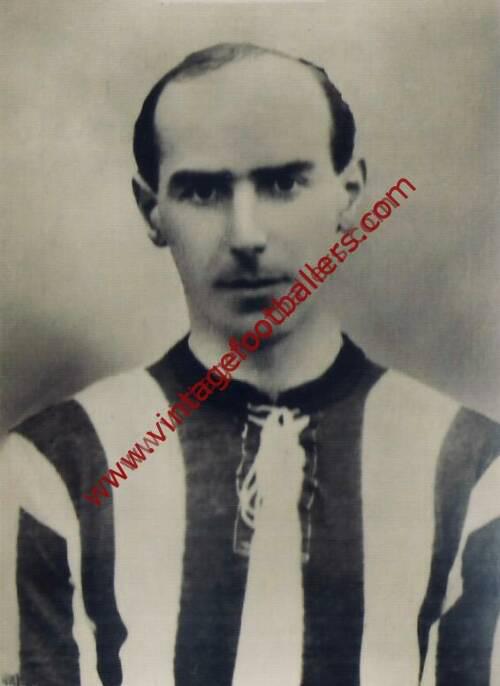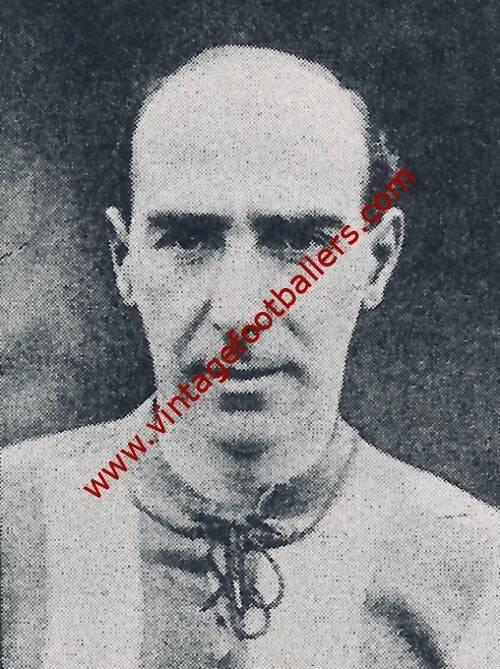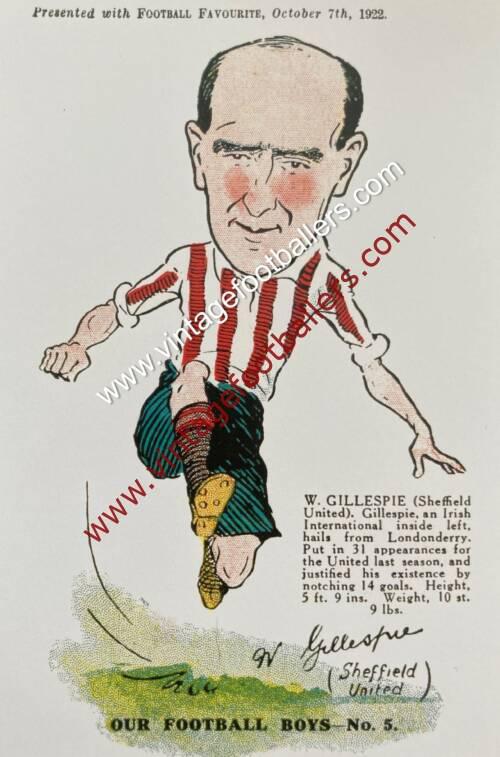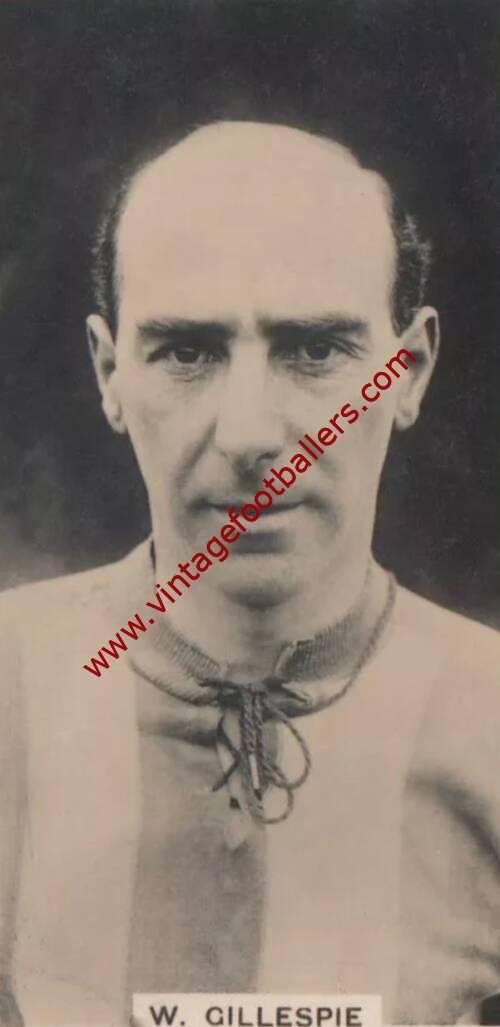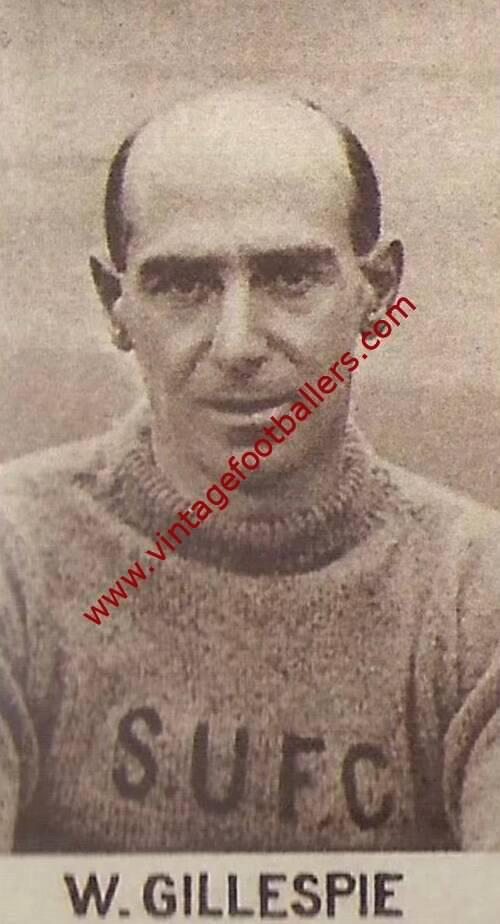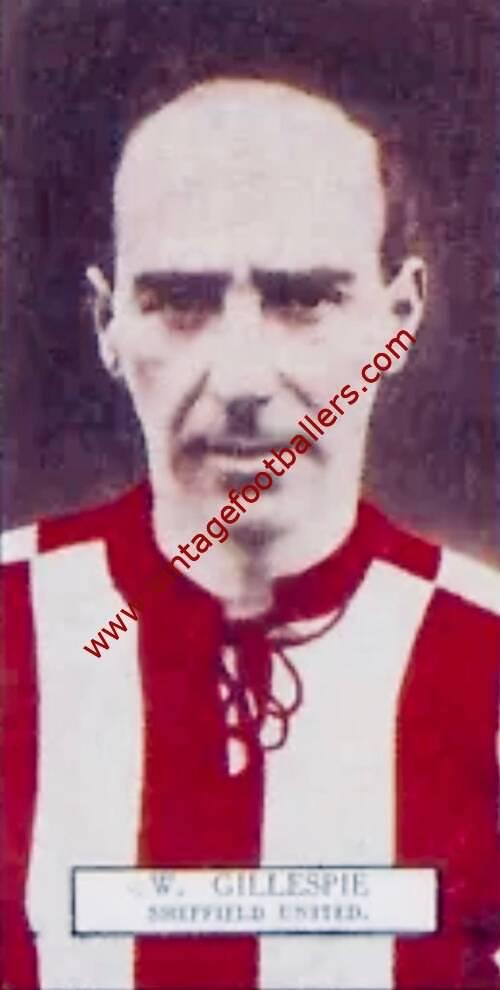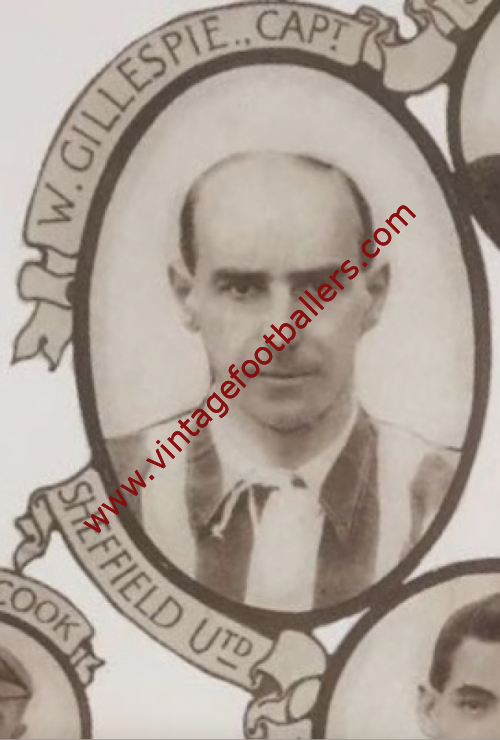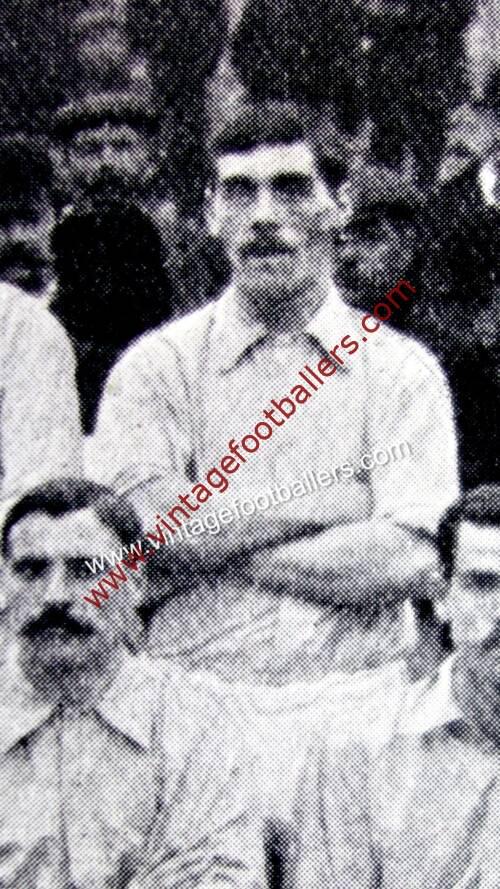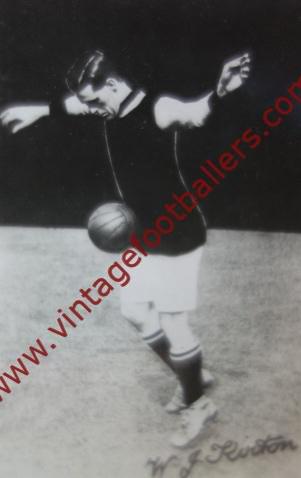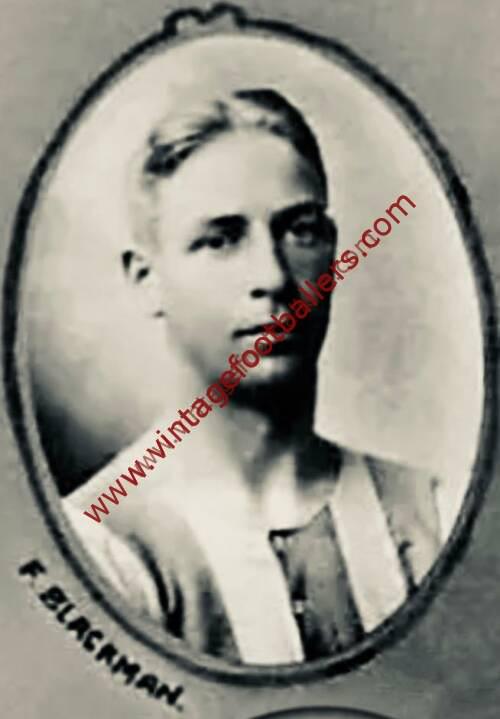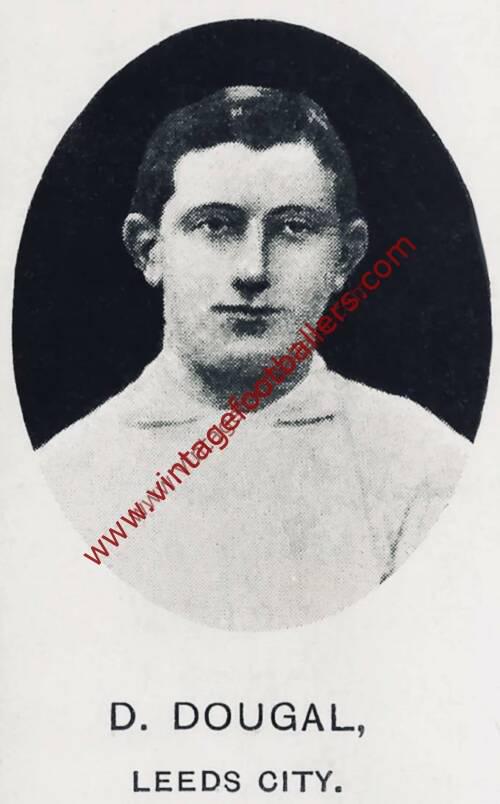Please choose your photo size from the drop down menu below.
If you wish your photo to be framed please select Yes.
Note: 16″x 20″not available in a frame.
Images can also be added to accessories. To order please follow these links
£8.95 – £49.95
Please choose your photo size from the drop down menu below.
If you wish your photo to be framed please select Yes.
Note: 16″x 20″not available in a frame.
Images can also be added to accessories. To order please follow these links
Kerrykeel, County Donegal born inside left Billy “Spider” Gillespie played junior football as a teenager for Derry Institute in 1907 before he signed professional with Second Division club Leeds City in May 1910. Leeds manager Frank Scott-Walford had been alerted to his talents earlier, when watching him score twice in a junior international match against Scotland at Celtic Park. Gillespie and countryman Joe Enright were given rave reviews after their displays in pre-season warm ups, Gillespie netting a hat-trick in the contest between the Whites and the Stripes. Gillespie made his Football League debut (as did Enright) against Blackpool that September. Gillespie opened his scoring account for City in the 1-1 draw with Birmingham at Elland Road on 1st October 1910. In just over a year he scored 10 goals in 24 matches for The Peacocks persuading Sheffield United to pay £500 for him in December 1912,
On 22nd December, the Yorkshire Post broke the news that the Irishman would be leaving Elland Road. “We are informed by Mr Scott-Walford, the Leeds City manager, that he has transferred W. Gillespie to Sheffield United at what is stated to be a record fee for the Leeds City club. Gillespie has been regarded as one of the most useful of the Irish brigade at Elland Road. He was secured from the Londonderry Guild club at the beginning of last season, and has played regularly with Leeds City either in the centre-forward or inside-left position. He has played with such success in the latter position that his transfer in the present critical state in the club’s affairs may occasion surprise, but, the management felt, in the circumstances, that they could not reasonably refuse Sheffield United’s offer for his transfer.”
According to Ivan Sharpe, Gillespie’s generalship and captaincy for Ireland exceeded even his successes with Sheffield United. An easy going inside left of straight forward methods, Gillespie had the golden gift of piercing a defence with one long, accurate pass”. “In reality the transfer has been forced by the trend of recent events. Gates of late at Elland Road have not been sufficient to pay the ordinary expenses of the club, and when Sheffield United weighed in with what is stated to be a bigger fee than has ever before been paid for the transfer of a Leeds City player, the management felt that the interests of the club demanded its acceptance. We have reason to believe that the fee is something approaching or something exceeding £400 and if that be so the acceptance of Sheffield United’s cheque will go some way towards tiding over Leeds United’s financial embarrassments.”
Billy Gillespie was to prove himself an all time Irish great and he would become a Blades legend. He made his debut on Boxing Day, scoring against Newcastle United, and in the period from his signature to the end of 1911-12 he scored 11 goals in 17 League matches, including a hat-trick in a 6-2 win over Manchester City in February 1912 and 4 goals in a 703 demolition of Bradford City in March, and one in the F.A. Cup as the Blades finished fourteenth in the First Division. Another hat-trick followed in November as The Blades beat Tottenham Hotspur 4-0 at Bramall Lane.
Gillespie first played for Ireland the following year, when he scored twice against England at Windsor Park, Belfast in February 1913. He was a part of the Ireland side that won the 1914 British Home Championship outright after gaining wins over England and Wales and a draw against Scotland at Windsor Park. Indeed he scored 5 goals in his four pre-First World War internationals. He won 25 caps for Ireland over the next 17 years, playing for his country until aged 38, scoring 13 goals for his country, a scoring record that was not broken until 2004. He is Sheffield United’s most capped player.
In his third season with Sheffield United he was part of The Blades’ team that narrowly lost the 1914 FA Cup semi final, 1-0 in a replay to eventual winners Burnley at Goodison Park. A broken leg in September 1914 received in the first game of the season against Sunderland prevented him from playing all season and he unluckily missed the 1915 FA Cup Final win over Chelsea, the so called “Khaki Cup Final” immediately before the onset of the First World War forced the suspension of peacetime football. During the War Gillespie played initially frequently for Sheffield United in wartime league football and then only occasionally as he served as a gunner in the Army, and it was in this time that he lost most of his hair.
Returning to Bramall Lane following the War, he continued to play regularly for The Blades throughout the 1920’s, every one of his 17 seasons at Bramall Lane being in the First Division. A regular but never a prolific goalscorer, Gillespie scored a career best 14 goals in each of 1921-22 and 1923-24 seasons. He took over as Club Captain from George Utley in 1923 and he also carried on as his country’s captain having led Ireland for the first time when he scored in a 3-0 win over Wales at The Racecourse Ground, Wrexham in April 1923, a few weeks after he had again lost in the FA Cup semi final, this time to eventual winners Bolton Wanderers at Old Trafford.
Having also lost twice in FA Cup semi finals he finally got a winner’s medal in the 1925 FA Cup Final ten years on from his broken leg when he captained United as they beat Cardiff City with a single Fred Tunstall goal at Wembley. Noted as “one of the brainiest players in the game” and “one of the greatest strategists Ireland has ever produced”, he was described as “a very real leader, and his captaincy had a great deal to do with Sheffield United winning the Cup”.
Having been a regular in The Blades’ starting eleven for ten post war seasons, he featured less in their starting line up from October 1929, by when he was already 38. He played his last match of 492 in a defeat at Blackpool in August 1931, having scored 137 goals for Sheffield United, before joining Derry City as their player-manager in 1932, where he stayed as manager after his playing retirement until 1940. He led Derry to two City Cup triumphs and on four successive occasions they finished runners up in the Irish League. He also led them to the 1936 Irish Cup final where they eventually lost 2-1 to Linfield after the first game had ended in a goalless draw in front of a 23,000 strong crowd at Celtic Park. Gillespie was held in such regard at Derry that the club agreed to change their strip to red and white stripes in recognition of his career at Sheffield United. Following the Second World War he continued his connection to United, acting as a scout for his former team and compiling match and player reports until the 1970’s.
NB Interestingly this image, published in 1926, still shows Gillespie with full(ish) hairline, i.e. it was most likely taken in 1914.
| Weight | N/A |
|---|
